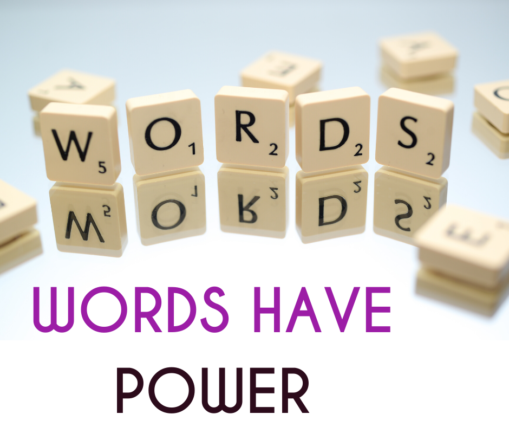
Sandra felt as low as the heels of her shoes when she pulled open the florist shop door, against a November gust of wind.
Her life had been as sweet as a spring breeze and then, in the fourth month of her second pregnancy, a “minor” automobile accident stole her joy.
This was Thanksgiving week and the time she should have delivered their infant son.
She grieved over their loss.
Troubles had multiplied. Her husband’s company “threatened” to transfer his job to a new location.
Her sister had called to say that she could not come on her long awaited holiday visit.
What’s worse, Sandra’s friend suggested that Sandra’s grief was a God-given path to maturity that would allow her to empathize with others who suffer.
“Thanksgiving? Thankful for what?”
“For a careless driver whose truck was hardly scratched when he rear-ended her? For an airbag that saved her life, but took her child’s?”
“Good afternoon, can I help you?” Sandra was startled by the approach of the shop clerk.
“I…. I need an arrangement,” stammered Sandra.
“For Thanksgiving?” Sandra nodded. Do you want the beautiful but ordinary, or would you like to challenge the day with a customer favorite I call the ‘Thanksgiving Special’?
I’m convinced that flowers tell stories,” she continued.
“Are you looking for something that conveys ‘gratitude’ this Thanksgiving?”
“Not exactly!” Sandra blurted out. “In the last five months, everything that could go wrong has gone wrong.” Sandra regretted her outburst, and was surprised when the clerk said, “I have the perfect arrangement for you.”
Then the bell on the door rang, and the clerk greeted the new customer, “Hi, Barbara… let me get your order.” She excused herself and walked back to a small workroom, then quickly reappeared, carrying an arrangement of greenery, bows, and what appeared to be long-stemmed thorny roses. Except the ends of the rose stems were neatly snipped: there were no flowers.
Sandra watched for the customer’s response. Was this a joke? Who would want rose stems with no flowers! She waited for laughter, but neither woman laughed.
The lady commented, “You’d think after three years of getting the special, I wouldn’t be so moved by its significance, but I can feel it right here, all over again.” She said, as she gently tapped her chest.
Sandra stammered, “That lady just left with, uh…. she left with no flowers!”
“That’s right, said the clerk. “I cut off the flowers. That’s the ‘Special’. I call it the Thanksgiving Thorns Bouquet.”
“Oh, come on! You can’t tell me someone is willing to pay for that!” exclaimed Sandra.
“Barbara came into the shop three years ago, feeling much as you do, today,” explained the clerk. “She thought she had very little to be thankful for. She had just lost her father to cancer; the family business was failing; her son had gotten into drugs; and she was facing major surgery.”
“That same year I had lost my husband,” continued the clerk. “For the first time in my life, I had to spend the holidays alone. I had no children, no husband, no family nearby, and too much debt to allow any travel.”
“So what did you do?” asked Sandra.
“I learned to be thankful for thorns,” answered the clerk quietly. “I’ve always thanked God for the good things in my life and I NEVER questioned Him why those GOOD things happened to me, but when the bad stuff hit, I cried out, “WHY? WHY Me?!” It took time for me to learn that the dark times are important to our faith! I have always enjoyed the ‘flowers’ of my life, but it took the thorns to show me the beauty of God’s comfort!
Sandra sucked in her breath, as she thought about the thought that her friend had tried to tell her. “I guess the truth is, I don’t want comfort. I’ve lost a baby and I’m angry.”
Just then someone else walked in the shop. “Hey, Phil!” the clerk greeted the balding, rotund man. “My wife sent me in to get our usual Thanksgiving arrangement… twelve thorny, long-stemmed stems!” laughed Phil as the clerk handed him a tissue wrapped arrangement from the refrigerator.
“Those are for your wife?” asked Sandra incredulously. “Do you mind telling me why she wants a bouquet that looks like that?”
“No… I’m glad you asked,” Phil replied. “Four years ago, my wife and I nearly divorced. After forty years, we were in a real mess, but we trudged through problem after problem.
We rescued our marriage. Jenny (the clerk) told me she kept a vase of rose stems to remind her of what she had learned from “thorny” times. That was good enough for me. I took home some of those stems. My wife and I decided to label each one for a specific “problem” and give thanks for what that problem taught us.”
“I don’t know if I can be thankful for the thorns in my life.” Sandra said to the clerk. “It’s all too… fresh.”
“Well,” the clerk replied carefully, “my experience has shown me that the thorns make the roses more precious.”
Tears rolled down Sandra’s cheeks. For the first time since the accident, she loosened her grip on her resentment. “I’ll take those twelve long-stemmed thorns, please,” she managed to choke out.
“I hoped you would,” said the clerk gently. “I’ll have them ready in a minute.”
“Thank you. What do I owe you?”
Do you curse the thorns or celebrate the roses?
If you focus on thorns, you will see more and more of the thorny problems that are all around you. Your focus will make them seem larger than they actually are, and more frequent than they actually are.
You will also find ways to turn non-thorns into thorns, in your mind’s eye.
That doesn’t mean thorns don’t exist if you focus on the roses, but you are less likely to become obsessed with the presence of thorns everywhere if you aren’t focused on them.
However, obsessing on the roses may cause you to be a little less cautious among the thorns.
Author Unknown




